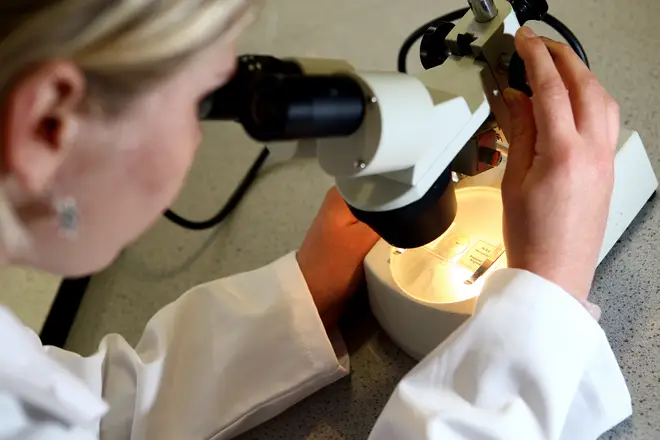
Tom Swarbrick 4pm - 7pm
11 September 2019, 11:21

Public Health England will today outline its strategy to fight a deadly new wave of bacteria that are resistant to antibiotics and risk making certain diseases untreatable.
Officials said bacteria that cause common infections of the blood, bladder, kidney and bowels had evolved new variants that could defeat the last line of antibiotic defences, risking an untreatable illness pandemic.
Public Health England said its laboratories had identified the 19 “new genetic mechanisms of antibiotic resistance”.
The superbugs were new variants of existing bacteria which cause infections such as MRSA, urinary tract infections, gonorrhoea and other STIs. They all proved untreatable with recognised antibiotic treatment methods.
12 new diseases have been detected in England for the first time in the last decade.

The findings come as PHE sets out a new five-year Infectious Diseases Strategy to tackle urgent current and future threats to our health, including antibiotic resistance, declining vaccination rates, pandemic flu, emerging diseases and health inequalities.
The new strategy seeks to strengthen our ability to prevent, detect, respond to and reduce the impact of infectious diseases.
The overuse of antibiotics must be stopped to contain the problem.
Celia Ingham Clark, medical director for clinical effectiveness at NHS England and NHS Improvement, said:
“As part of the Long Term Plan, the NHS will reduce the use of antibiotics by a further 15% to keep them as effective as possible, for example by offering patients access to new treatments, and will embrace new technologies so the NHS can act sooner to prevent ill health developing in the first place.”
What’s contributed to #antibioticresistance in #gonorrhoea? Reasons include:
— Global Antibiotic R&D Partnership (@gardp_amr) September 10, 2019
- Ability of gonorrhoea bacteria to evolve & create resistance mechanisms
- Unrestricted access to antibiotics
- Inappropriate use & overuse of antibiotics#GARDP #WakeUpToAMR
Public Health England's national conference takes place today where the issue will be discussed.
Its new strategy focuses on eliminating hepatitis B and C, tuberculosis and HIV and halting the rise of sexually transmitted infections, optimising vaccination provision and better responding to major incidents and emergencies, including pandemic influenza.
PHE says: "Globally, the infectious diseases challenges of today are amplified by increased movement of people and climate change. These increase the chances that we will witness a global pandemic in the coming years, including pandemic influenza and novel viruses – so called ‘Disease X’, a hypothetical epidemic caused by a yet identified virus or bacteria."
“Infectious diseases don’t stand still. Bacteria are locked in an evolution race with antibiotics, constantly evolving new ways to avoid their impact,” said Sharon Peacock, the director of Public Health England’s (PHE) national infection service.
Antibiotic resistance happens when bacteria change and become resistant to the antibiotics used to treat the infections they cause.#AntibioticResistance #Prevention #MonitorHealthcare pic.twitter.com/QJec59YHBA
— Monitor Healthcare Ltd (MHL) (@monitorhealthca) September 9, 2019